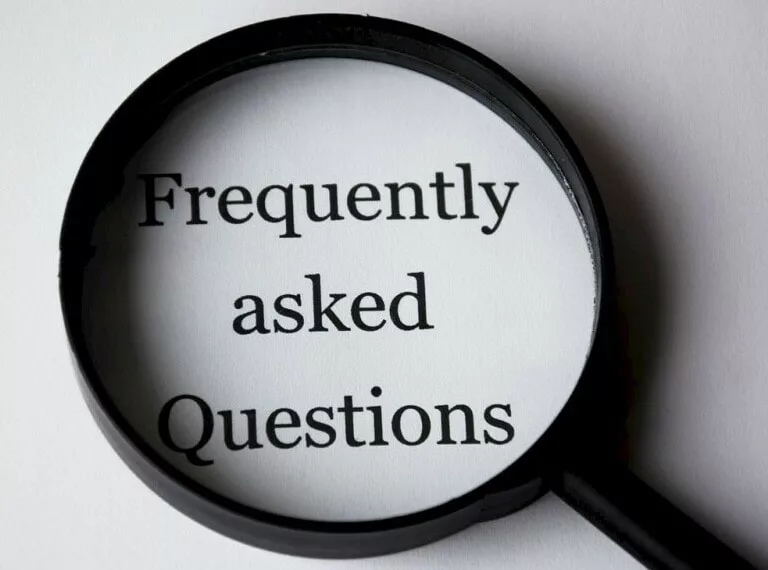Topic – Getting Started/Beginners
Post Reading Time – 13 Minutes
Falling victim to online scams can happen faster than you think. I’ve been there and done that, so I know how one wrong click, or a moment of distraction can put your personal details and hard earned money at risk. Scammers are more cunning than ever these days, making fake emails, offers, and messages look completely legitimate.
Here, I want to talk to you about the ways to avoid scams online, helping you recognize the warning signs and keep your information safe.
Recognizing The Ways To Avoid Scams Online
To avoid online scams you need to stay cautious and pay attention to the details. Be careful with unsolicited offers, especially those that promise fast or easy returns. Don’t click on links you’re unsure about, or share any of your personal information with anyone you don’t fully trust. Take a moment to verify if a company is legitimate by checking directly with them through official channels.
Set up two-factor authentication for added security, and watch for any warning signs, like urgent requests or odd payment methods. These small steps can go a really long way in keeping you safe.
For more advice, check out the essentials checklist below.
What You’ll Learn From This Post
- How To Spot Suspicious Offers – Scammers often tempt people with amazing deals, high returns, or even lottery wins. You’ll learn how to recognize these too-good-to-be-true offers, and question them before ever getting involved.
- How To Avoid Emotional Traps – Scammers are good at playing on emotions to trick you. You’ll understand how to spot tactics like heart wrenching stories, or high pressure situations designed to affect your judgment – and how to pause, think, and respond wisely.
- How To Check Links And Emails Safely – Fake emails, texts, and phone calls are common ways for scammers to make contact. This post will show you how to verify senders, and avoid clicking on anything that could expose you to malware or phishing attacks.
- How To Protect Your Personal Information – Your personal details, such as passwords and banking information, are exactly what scammers are after. You’ll learn how to keep this information safe by sharing it only through secure, verified channels.
- Why Staying Updated And Using 2FA Matters – Keeping your devices and apps updated is a simple way to stay secure. You’ll also see how adding two-factor authentication (2FA) to your accounts can protect you, even if someone gets hold of your password.

Start Your Training
- Build Your Website & Earn Revenue
- Support, Tools & Training Included
- Complete with Business HUB
- Artificial Intelligence Writers
- My Personal Support
- No Risk Free Starter Account
In 2023, online scams cost Americans over $8 billion. It’s a huge amount, isn’t it? Scammers are becoming more clever every day, constantly finding new ways to trick people.
They will often use current events, like the release of a new gadget or a global crisis, to make their scams seem more convincing in their attempt to catch you off guard.
And you have to look at their timing as well. It’s often when you’re least expecting it. Maybe you’re busy at work, relaxing in the evening, or just distracted, and that’s when they try it on. A phone call, a text, or an email comes out of nowhere, hoping to catch you out.
So, how can you stay one step ahead?
Well, it’s your awareness. Knowing how scams work gives you the information you need to spot the warning signs before they become costly mistakes.
By staying alert to these tactics, you can keep potential threats at bay and protect yourself both on and offline.
How To Spot The Common Signs Of Scams Online
I know that spotting a scam can be tricky for some people, but there are clear signs to watch out for that can help you stay protected.
To start off with, think about those offers that sound too good to be true. You see them a lot, like the promises of high returns for very little effort, or a surprise lottery win that you never entered.
Always approach these with caution and learn more about spotting potential scams in online opportunities.
Strangers asking for money is another big red flag, especially when it comes with emotional stories designed to play on your sympathy. Scammers often rely on urgency to get you to act before thinking things through properly.
Be extra careful with emails or messages containing suspicious links or attachments. A quick click might seem harmless, but it could lead to malware or phishing attempts that steal your information.
Pressure to act fast is one of the most common tactics scammers use. They might warn you of negative consequences if you don’t respond immediately, trying to stop you from thinking things through calmly.
Unusual payment requests, like asking for gift cards, preloaded debit cards, or cryptocurrency, are another clear indicator of a scam. If a request seems strange, stop and ask yourself why.
Also, watch out for requests to open new accounts or set up payment methods, like PayID, as these can sometimes be part of larger scams, including money laundering schemes.
The more you understand these warning signs, the better prepared you’ll be to stay safe. Always approach unsolicited offers or requests with skepticism and caution.
Now that we’ve gone over the warning signs, let’s talk about how you can actively protect yourself from these scams.

Practical Tips On The Ways To Avoid Scams Online
To stay safe from online scams, you need to always be cautious. and think things through before you act. When in doubt, never share your personal details or money with anyone you don’t trust completely.
If you receive links or attachments from unfamiliar sources, take a moment to question them. “Ask yourself, ‘Do I know this person or company?‘” If the answer is no, it’s best to avoid clicking. Malware often hides in these links, waiting to infiltrate your system.
Trust is important, but always verify it. If someone claims to represent a well known organization, don’t just take their word for it. Try to reach out to them directly through an official website or phone number to confirm they are who they say they are.
Keeping your software and systems updated is another simple and effective way to stay secure. Regular updates often include the latest security patches to protect against new threats.
Protecting yourself comes down to staying alert and trusting your instincts. If something doesn’t feel right, it’s usually best to avoid it.
A little caution can make a big difference in keeping you safe online.
Staying Alert To Follow Up Scams Online
Scammers don’t always stop after the first attempt. They often try again, especially if they’ve succeeded in tricking someone before.
In these follow up scams, they might claim to be helping you recover your lost money, but their real goal is to trick you again.
Statistics show that if you’ve been scammed once, you’re more likely to be targeted again. Scammers count on the emotions of fear and hope – the fear of you losing more and the hope of getting your money back.
If you’ve experienced a scam, it’s important that you stay on your guard. Be particularly cautious of anyone who reaches out to you, claiming they can help fix the situation.
It’s harsh, I know, but these people are often part of a secondary scam attempt. Being targeted more than once is no coincidence, as scammers network and share information, which increases the chances of you being approached again.
Awareness and caution when communicating can reduce this risk.
Keep in mind, genuine organizations will never ask for money to help you recover stolen funds. If someone claims they can assist you, take the time to verify their claims independently before engaging with them further.

Quick Actions To Take When You Suspect A Scam Online
The moment you suspect you’re dealing with a scam, take a step back and assess the situation carefully.
Avoid rushing into decisions or sharing your personal information. Scammers love to create urgency, so pausing to reflect can save you from a lot of trouble afterward.
Always verify things before you act. If you’re unsure about something, take the time to check if the message or call is legitimate. Contact the supposed sender directly, using trusted methods rather than relying on the details provided in the suspicious message.
Once you’ve confirmed it’s a scam, report it to the appropriate authorities. Reporting it protects you, and it helps prevent others from becoming victims too.
Every report adds to the effort to stay ahead of these scammers.
Trust your gut. If something feels off or seems too good to be true, listen to your instincts. They’re often your best defense against potential scams.
Finally, remember that protecting yourself doesn’t mean avoiding all interactions or living in fear. It’s about staying informed, being cautious, and making good decisions to keep yourself secure online.
Additional Beginner Info & Resources
4 Tips To Keep Yourself Safe From Investment Scams Online
Be skeptical of unsolicited offers
Unsolicited investment offers should always raise a red flag. Genuine investment opportunities don’t just appear out of nowhere, especially not through random phone calls or emails.
Always approach them with caution and don’t rush into anything.
Verify the company’s legitimacy
Always take the time to verify the legitimacy of any company offering you financial services. A quick online search using terms like “scam warning” or checking if they’re registered with the proper financial authorities can save you from potential losses.
Consult trusted sources
Ask for advice from trusted friends, family, or professional advisors. Getting an outside perspective can help you spot red flags or avoid risky decisions that you might not give attention to in the heat of the moment.
Invest in what you understand
Stick to investment opportunities that you fully understand. If the terms seem too complex or hard to explain to someone else, it’s probably not a good idea. When you have clarity about the investment, you’re less likely to fall victim to deception.
Your Essentials Checklist to Avoid Online Scams

| Always be skeptical of offers that seem too good to be true | Scammers often promise unrealistic rewards or high returns with minimal effort. If it feels like an unbelievable deal, it’s probably a scam. |
| Avoid clicking on suspicious links or downloading attachments | Links in unexpected emails or messages can lead to malware or phishing sites. Always double-check the sender’s legitimacy before clicking or downloading anything. |
| Verify the legitimacy of organizations | If you’re contacted by a company, reach out to them directly through their official website or trusted contact information. Never trust the contact details in a suspicious message. |
| Be cautious of messages that create urgency or pressure | Scammers thrive on panic. If you’re pressured to act immediately to avoid negative consequences, take a step back and assess the situation carefully. |
| Never share your personal or financial information with unfamiliar sources | Whether it’s an unsolicited email, a phone call, or a social media message, always question why someone would need your personal data and avoid sharing it unless you’re absolutely sure. |
| Watch out for unusual payment requests | Scammers often ask for payment through untraceable methods like gift cards, preloaded debit cards, or cryptocurrency. Be wary of anyone requesting these types of payments. |
| Keep your software and systems updated | Regular updates to your operating system, antivirus, and apps install the latest security patches to protect your devices from vulnerabilities. |
| Use two-factor authentication (2FA) | Enable 2FA on all sensitive accounts. This extra layer of security makes it harder for scammers to gain access, even if they obtain your password. |

Frequently Asked Questions – FAQs
What should I do if I suspect an email or message is a scam?
If you think you’ve received a scam email or message, avoid clicking on any links or providing personal information. Instead, verify the sender by contacting the organization directly using official contact methods and not the details provided in the suspicious message.
If necessary, report the scam to your country’s consumer protection agency or relevant authorities.
How can I tell if a blog or website is safe to use or not?
Look for security indicators like “https” in the URL and a padlock symbol in the address bar. Research the website for reviews or complaints, and make sure it includes clear contact information.
Be cautious of websites that lack these features or appear poorly designed.
What are these scams known as phishing scams, and how can I avoid them?
Phishing scams are fraudulent attempts to gather personal information by pretending to be a legitimate business or entity. You can avoid them by not clicking on suspicious links, especially in unsolicited emails or texts.
Always verify the source of any message before sharing your information.
What should I do if I accidentally give my personal information to a scammer?
If you’ve shared personal information with a scammer, act quickly. Change your passwords, enable two factor authentication, and notify your bank or credit card company if financial details were involved.
Keep an eye on your accounts for any suspicious activity.
Why do scammers ask for payment in gift cards or cryptocurrency?
Scammers prefer gift cards and cryptocurrency because they are difficult to trace and provide immediate, irreversible payment.
Be suspicious of anyone requesting these forms of payment, especially in unsolicited offers or transactions.
Can scammers target me more than once?
Yes, if you’ve fallen for a scam before, scammers may try to target you again through follow up scams. These often involve pretending to help you recover lost funds.
Be cautious of anyone reaching out to fix the situation, as it could be another scam.

Money Management & Protecting Your Finances
To keep your money secure online, you need to be aware and understanding all of your accounts settings.
Make sure your card security features, like daily withdrawal limits and instant card locking, are all enabled. These tools can provide you with quick protection if your card is ever lost or stolen.
Keeping your contact details up to date with your bank is more important than it might seem too. This will make sure that they can reach you immediately if they detect any suspicious activity or notice something that doesn’t seem right.
Always take your time before responding to any payment requests. Giving yourself a cooling off period to verify the request’s legitimacy can often help you spot warning signs you might have missed by rushing.
Setting up daily withdrawal limits adds an extra layer of protection, further reducing the risk of your account being emptied in the event of fraudulent activity.
Two-factor authentication is another simple step that can increase your security. This extra layer makes it much harder for scammers to gain unauthorized access and gives you peace of mind whenever you log into your sensitive accounts.
Why I’m Passionate About Sharing This Information With You
Before I understood what it took to find success online, I fell for many of the offers out there that looked promising but turned out to be worthless. I spent money, wasted my time, and ended up with nothing.
Back then, scams weren’t as widely recognized as they are now, and I found myself drawn to the so called “fast ways to make money.” Most of them were scams, leaving me frustrated and disillusioned.
Through those experiences, I learned the hard way how to spot scams and what it really takes to succeed online. That’s why I’m sharing this with you, to help you avoid the mistakes I made and stay safe while looking at opportunities on the internet.
Always take the time to recognize that the small steps, though they may actually seem minor, can contribute to your overall security.
Your finances are worth the extra time and care it takes to protect them from scams.
Have you ever encountered an online scam? Feel free to share your experiences so others can benefit from them.
Thank you, and please leave your thoughts and comments below.
Chris
Wealthy Affiliate
This is where my journey into the online world began, and it’s still the only community I trust for genuine, high quality guidance on building a business and earning money online.

The Wealthy Affiliate platform offers everything you need – training, hosting, tools, resources, and live assistance – all in one place.
If you’re ready to start your online business, this is the perfect place to begin.
I highly recommend Wealthy Affiliate for its unmatched support and resources.
About Chris Towers – Follow Me

My name is Chris Towers, and I’m here to help you make sense of affiliate marketing and build an online income. Through years of experience, I’ve learned what works, and I want to share those lessons here to help you succeed.
Related
- Starting An Online Business While Working Full Time & Succeeding
- The Ways To Avoid Scams Online and Keep Yourself Safe
- The Best Sites For Building Your Own Website On – Expert Picks!
- Top 5 Mistakes To Avoid When Starting An Online Business
- Steps To Starting An Affiliate Marketing Business – A Simple Guide
- Is Making Money Online Easy? What You Should Really Know
Just to be open with you – My site includes links that are part of affiliate programs. If you click on these links and buy something, I might get a small commission. There’s no additional cost for you whatsoever. It’s a simple way to support the content I create for you. I hope you are OK with this & thank you for your understanding.







Scammers are really getting more and more advanced and it is getting increasingly difficult to tell what is real and what is a scam. You have provided a great resource in the form of a list to check against when in doubt, so I am going to print it out for future use. Thanks for this.
Keeping on top of the ever changing technology is another daunting task, and I always try to keep all my software updated to the latest versions.
I own an Apple Imac and although they say they don’t get viruses, I still worry about malware.
Do you recommend getting anti virus software for Apple products?
Hi Michel and thank you for your comment!
I’m glad you found the resource helpful and printing out the list is a great idea to have it on hand when needed.
You’re absolutely right about how quickly technology changes. Staying updated with the latest software versions is one of the best ways to protect yourself, so it sounds like you’re on the right track!
As for Apple products, I do not use them myself, but while it’s true that they are generally less targeted by viruses, no system is entirely immune. Malware, phishing attacks, and other threats can still pose risks.
I would recommend using reputable antivirus software on your iMac, especially if you handle sensitive information or download files from various sources. This adds an extra layer of protection that’s definitely worth considering.
Let me know if you have any other questions!
Thanks,
Chris
This is a great article with some good tips for staying safe online. Scammers are getting more sophisticated all the time, and I appreciate how you’ve gone through the common red flags to look out for, like unsolicited offers and urgent requests for personal info.
Also, I found the reminder to verify links and use two factor authentication as very important.
It’s very clear from this info that online safety requires constant attention, and your advice is great for anyone looking to avoid scams.
Thanks for sharing.
Thank you for getting in touch. It’s good to learn you found the tips helpful.
You’re right too, scammers are getting more sophisticated every day, so staying aware and using things like two factor authentication can make a huge difference.
If you’ve ever come across any scams yourself or have additional tips to share, feel free to drop them in the comments.
In my opinion, it’s always great to learn from each other’s experiences!
Thanks
Chris